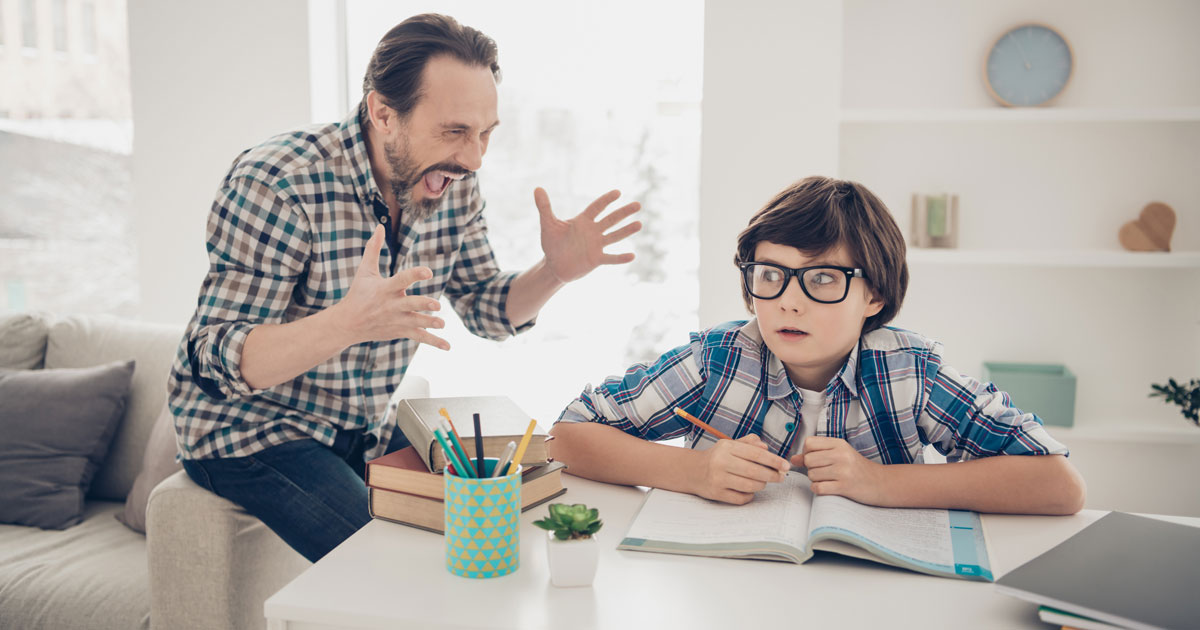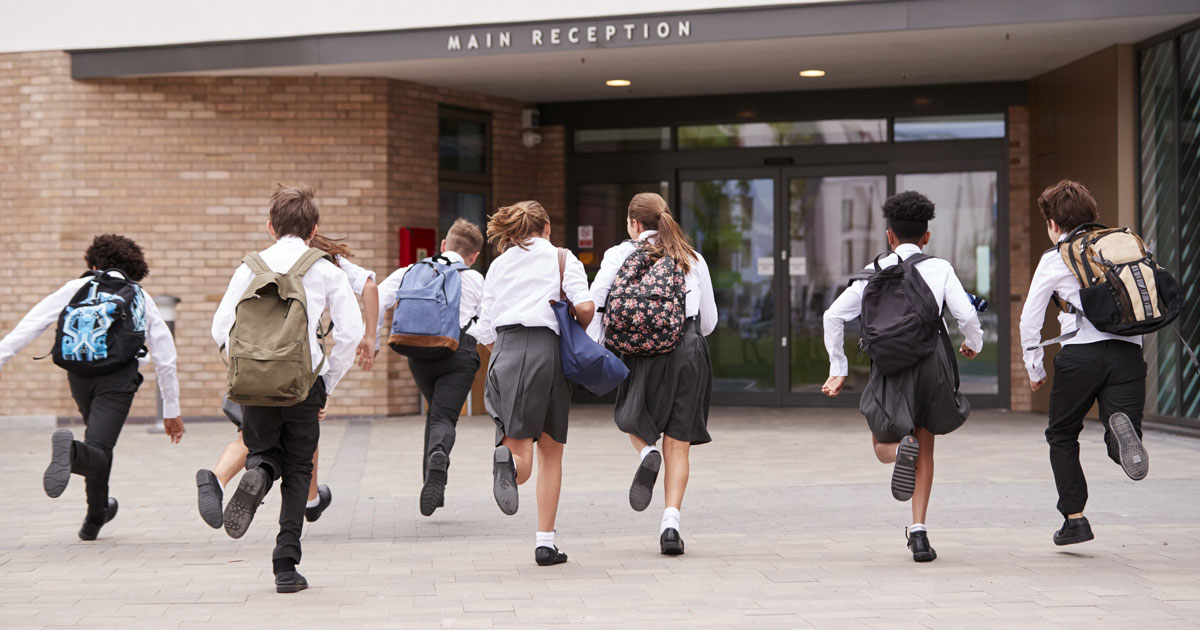I just returned home after dropping both kids at school for the first time in many months.
Starting a school year is always emotional; it’s a strange experience taking a person you have devoted much of your life to keeping safe from harm and then handing them over to almost complete strangers.
This year has been – for reasons you have probably noticed unless you’re reading this on Ganymede – particularly strange. Of all the emotions and thoughts wrestling for cognitive space as I watched them disappear inside the once-familiar building, one was particularly prominent:
“Oh, thank God!”
Second wave
I’m aware of the controversies and worries, and I don’t want to be glib about the very real risks of schools returning, but education does strike me as more essential than going out for drinks or on holidays.
God knows we all need to relax, especially this year, but if, like me, you had to work from home and home school as well, then you probably already know what I’m talking about. If you didn’t, then trust me when I say that, if schools hadn’t gone back, the second wave of fatalities would probably have been homicide.
Teaching is hard
We knew that teaching the kids from home wouldn’t be easy, but by Satan’s unholy scrotum, we really didn’t think it would be quite so hard.
Our kids (five years old and three years old at the start of the lockdown) were intelligent, attentive, and did well at school (apart from the time I was checking through my son’s school book to find the memorable sentence “sent to see the headteacher for weeing in a bin”); we were, we flattered ourselves, intelligent, attentive and well-educated ourselves. How hard could it be?
The answer to that rhetorical question was “very hard” – we’re talking “getting Donald Trump to admit he’s ever made a mistake” levels of hard.
Parent / teacher
What we rapidly discovered was that there is a very different social dynamic between parent and child than teacher and pupil. It’s tough on the kids and it’s tough on you to try to switch roles like that.
Kids who wouldn’t dream of making a fuss in class in front of all of their friends are very ready to let their true feelings known at home. My son, for instance, wouldn’t dream of telling his teacher to “Go away!“ or roll his eyes and whine, “Not maths again!“, but it was a daily occurrence at home.
Similarly, I suspect none of my children’s teachers have ever jumped up and down in frustration and shouted “It just… it just is, okay?“ at them after failing to explain how the solution to a mathematical or grammatical problem was arrived at for the eighth time (especially frustrating when you think you’ve managed to reframe the problem in several thoughtful ways you’re sure will appeal to a five-year-old, only to be met with blank stares or a three-year-old tugging on your arm saying “Daddy, I made a bit of a mess”).

Little help
The guidance from schools was very variable, and we received relatively little. When the guidance did start to arrive in earnest, it generally assumed a full day’s schooling – which would have been enough to drive me to the brink of madness even if I hadn’t been simultaneously trying to work from home and study for an exam.
Ultimately, all the guidance did was make us feel inadequate at our paltry efforts.
Home schooling felt like cleaning out the clogged pubic hairs from the shower drain – something that needed to be done, but no one involved was enthusiastic, and it led to many arguments and terrible smells.
Uncommon ground
The difference in ability made it doubly challenging. There are very few classes that work for both a three-year-old and a five-year-old, and even when there is common ground there’s only a very limited amount of Joe Wicks a nerdy man in his mid-40s can stand to watch (sorry, Joe, I know you were doing your best to help).
It’s extremely hard to set tasks that will keep both of them occupied for the same amount of time, and heaven forbid one of them starts playing while the other one is still working; it’s amazing (and may even point to a deep truth hidden within the human psyche) that someone who can’t yet count to 15 has, nevertheless, a deep and inherent sense of what’s fair and, more particularly, what bloody well isn’t.
Death and destruction
We had a few successes along the way. I’m passionate about history, because I love stories, and history is really a collection of the best stories all jumbled together, and I managed to pass some of that passion on to my son.
We drew a timeline from the big bang to his birth together, and he is now fascinated with the Titanic, Apollo 11, Vikings, and Pompeii.
Now, it hasn’t escaped my notice that most of this involved large-scale death and destruction. Still, I’m optimistic that we have a footing to talk about the world and his place in it with more complexity than we have before; I’m planning to talk to him about Rosa Parks and why Black Lives Matter very soon.
Unrecognisable
There came a point during the lockdown (which I know still isn’t over, and that there may be many more months to come) when I realised that, in between trying to write up cases, read papers, practice essays and teach the children (all in the same room, by the computer that I usually just used to relax and play games on) that I wasn’t trying to work from home – I was trying to home from work. I was trying to remember how to relax and be normal in a place that hadn’t changed physically but, in every other way, was unrecognisable.
I don’t know about you, but I failed utterly. Life is never going to be the same after COVID for many of us – and certainly for me, my children, or my wife.
Lessons learned
I’m offering a huge and socially distanced hug to all of you for what we’ve all been through these past few months, especially those of you who, like me, realised how valuable teachers are in our lives, and are able to think “Oh, thank God!” now we’re able to entrust our children’s hearts and minds to professionals once more.
Homing from work was hard, unrewarding, stressful, and it broke me in the end. But just sometimes, when I sit and watch my son carefully dig a channel in Minecraft to flood an entire village with lava, then turn to me, eyes bright, to say, “Look, daddy – just like Pompeii!”, I feel that both of us learned something during the lockdown.
He learned that it’s much easier (and, sadly, much more fun) to destroy than it is to create, and I learned I should never, ever, consider retraining as a teacher.

Leave a Reply